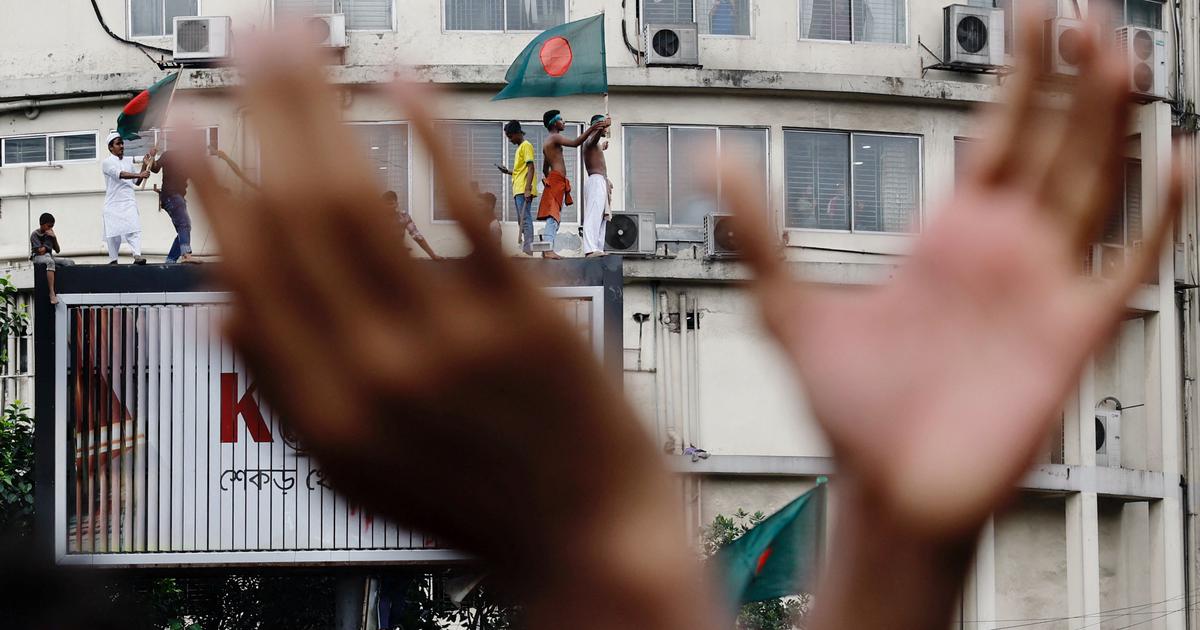There are some incidents in world history that are so momentous that they transcend ideology or party politics.
The recent movement which has culminated in the resignation of the prime minister was one such movement, because, regardless of whether one is an Awami League supporter or an intractable foe of the party, the events of the past month have the potential to be far more earthshaking and consequential for Bangladeshi politics than any mere political spat between what we have become accustomed to calling Bangladesh’s two major political parties.
What we saw over the past month was the coming of age of an entire generation of young Bangladeshis. It was glorious to watch, as they conducted themselves with courage, commitment, and conscientiousness, and found inside themselves fight, spirit and resolve that even they perhaps did not know were there before.
They showed us that the future of Bangladesh is in good hands and that we have raised a generation of young men and women of whom we can all be proud, a generation of young men and women who care deeply about fairness and justice and working together for the betterment of society and are willing to put themselves on the front lines, willing to sacrifice everything in order to make their point and pursue what they believe is the right thing to do.
The lesson which has come through loud and clear for my generation of Bangladeshis and those older than us is that the young generation is not the callow, materialistic, unprincipled, uncommitted, unmotivated generation that it has been lampooned as, quite the opposite.
This is a generation which believes in something, and, even more importantly, believes in itself. This is a generation which is going to do great things in the world, and all we need to do is give them the space, freedom, and opportunity to be themselves, and they will take care of the rest.
We are all still trying to make sense of the events of the past 24 hours and to understand what it all means and what it all signifies.
For me, the crucial point about the protest movement that succeeded in bringing down the prime minister was the fact that it was a youth movement, a student movement, a movement of, by, and for young Bangladeshis.
I think that this is the best way to truly comprehend what a tectonic shift in Bangladeshi politics the resignation of the prime minister presaged and to understand why it was such a significant, watershed moment in the history of our young nation.
For too long now, politics in Bangladesh has been a binary battle between the Awami League and the Bangladeshi Nationalist Party and their allies on either side of the aisle. And it is tempting to look at the present conflagration through the same prism.
Except what makes this movement different, indeed what has made all the student movements of the past decade different, is that they have cut across political lines, and perhaps this is what we needed to do and where we needed to get to to finally create a workable politics that addresses the concerns of the people instead of viewing them solely as a vote-bank at best, a punchline, at worst.
For too long has Bangladeshi politics been subsumed into the dysfunctional, almost tribal nature of the binary political divide. And as long as that was what divided us, not matters of policy, visions, and values, then our politics was destined to go nowhere except to churn over again and again the ground covered for decades.
Now, finally, I see a glimmer of hope that we can move beyond these tired binaries.
The movement which brought down the prime minister is best understood not as the quota reform movement but the movement of an entire generation asking for space for their concerns to be heard. At heart, that was the issue that was at the crux of the quota reform movement: a youthful populace who felt that they were being ignored and dismissed and who wanted nothing more than a seat at the table.
And this is ultimately what they have achieved with their movement, or at least have the potential to achieve: the possibility of being heard.
They were rebelling against the system we have in place in Bangladesh where there is no representation, no accountability, no transparency, no way to advance yourself by virtue of your merit.
This is just the beginning. What the young men and women who were at the heart of the movement recognize is that everything needs to change. They have already shown us what they are capable of when they come together to work towards a common goal.
Now we have the chance to work together as a nation, led by our youth. We need to completely reimagine our political structures and systems such that the chronic dysfunction and cronyism and corruption that has bedevilled us for the past half century of independence can be washed away.
We need to create a system based on rule of law, rights, freedoms, justice, equality before the law, and equality of opportunity for all.
This was never just about quotas. Even less was it about the removal of the prime minister. What it has always been about and what it always will be about is the creation of space such that Bangladeshis can live truly free, with full opportunity to make something both of themselves and their nation.
This is what the fight is about, moving forward. And as the dust settles we must ensure that this vision is what we adhere to and that we do not get side-tracked as we have always been in the past. We won’t get another chance. We have to get it right this time.
Zafar Sobhan is Editor, Dhaka Tribune.
This article was first published on Dhaka Tribune.










